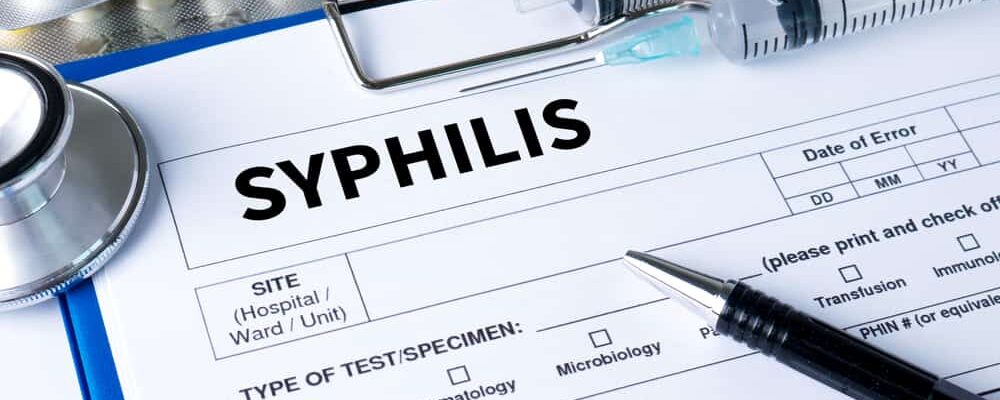Gonorrhea is sexually transmitted diseases. It’s quite common and both women and men can get it. In particular, people who have sex with many people often have a higher risk of contracting the sexually transmitted diseases.
General information about gonorrhea.
Gonorrhea is a sexually transmitted infection (STI), caused by bacteria Neisseria gonorrhoeae or gonococcus. The disease can be easily spread between people through:
- Vaginal, oral or anal sex
- Share vibrator or other sex toys unwashed or covered with a condom each time.
Gonorrhea affects the urethra, rectum, and throat. Gonorrhea in women also affects the reproductive organs.
Common gonorrhea symptoms
What are the signs and symptoms of this disease?

Symptoms of gonorrhea usually do not appear immediately after you are infected. Symptoms usually appear about 10-20 days after infection. When symptoms appear, you should get treatment as soon as possible. If left untreated, this sexually transmitted diseases can cause a rash, fever, and eventually joint pain.
Clinical signs and symptoms of this sexually transmitted diseases are often different in men and women.
Signs of gonorrhea in men include:
- Painful urination
- Urinate more
- Pus in the penis
- Pain or swelling at the tip of the penis
- Swelling or pain in the testicles
- Persistent pain
Signs of gonorrhea in women include:
- Abnormal discharge from the vagina
- Pain or burning sensation when urinating
- Frequent urination
- Sore throat
- Pain during sex
- Pain in the lower abdomen
- Fever
Many women think they have a yeast infection when they notice an abnormal vaginal discharge, but it’s actually caused by the gonorrhea bacteria. This leads them to self-medicate with over-the-counter medications to cure fungal infections. However, you should absolutely not treat it like that because an abnormal vaginal discharge can be a sign of many different problems. Therefore, the best way is to see a doctor for an accurate diagnosis and proper treatment.
You may experience other symptoms not mentioned. If you have any questions about symptoms, consult your doctor.
When do you need to see a doctor?
You should see your doctor if you have the following symptoms:
- Painful urination
- Increased vaginal discharge
- Abnormal vaginal bleeding
- Anal itching
- Soreness, anal bleeding, and pain during defecation in both men and women.
If you have any of the above signs or symptoms or have any questions, please contact your doctor.
Causes of gonorrhea

Gonorrhea is caused by bacteria Neisseria gonorrhoeae or gonococcus, can be easily spread between people through:
- Vaginal, oral or anal sex;
- Share vibrator or other sex toys unwashed or covered with a condom each time.
Risk of catching this sexually transmitted disease
Who usually gets gonorrhea?
Although it affects both sexes, gonorrhea is more common in men than gonorrhea in women. However, not many people realize they have this disease because it rarely has symptoms. Subjects susceptible to disease are people who are sexually active.
You can control this disease by minimizing your risk factors of sexually transmitted diseases. Please consult your doctor for more detailed information.
What factors increase the risk of sexually transmitted diseases – gonorrhea?
There are many risk factors for gonorrhea, but the most important one is unprotected sex. Some of the risk factors for the disease are:
- Sex
- Got a new girlfriend
- Have many lovers
- Have been diagnosed with gonorrhea
- Have other sexually transmitted diseases.
Effective treatment of this sexually transmitted diseases
The information provided is not a substitute for medical professional advice. Always consult your doctor.
Your doctor can diagnose gonorrhea by:
- Clinical assessment is based on medical history and identification of characteristic symptoms
- Use a toothpick to check the discharge sample
- Check the urine sample.
Check for gonorrhea during pregnancy
If you think it’s possible that you have gonorrhea or another STD, contact your doctor to get tested. You should also get tested at any time during pregnancy if you or your partner have signs of gonorrhea or have another sexually transmitted infection.
To test, your doctor will take a urine sample or take a sample from your cervix and send it to a lab for analysis. If you have anal or oral sex, your doctor may also take samples from your throat and rectum. If your test is positive, treatment must be initiated immediately.
What methods are used to treat gonorrhea?

To completely cure gonorrhea, doctors will prescribe you both oral or injectable antibiotics during treatment. In addition, your partner will also be treated at the same time to prevent reinfection and the possibility of the disease spreading to other areas.
It is important that you keep taking your medication even though you feel better. Moreover, you are also not allowed to take any over-the-counter medications during the treatment because it can make the disease more difficult to treat. In addition, you should follow some of the following tips:
- Tell your partner that you have the disease. This is important because gonorrhea often causes no symptoms, especially in women. As a result, they may not be able to self-identify the disease and treat it promptly until informed by their partner.
- You should not have sex until the disease is completely treated.
- You should use a condom every time you have sex to avoid catching this infection.
For pregnant women, the doctor will prescribe antibiotics that are safe during pregnancy. If you have more than one STI, your doctor will treat them at the same time. Chlamydia often occurs at the same time as gonorrhea. Your sex partner also needs treatment. To avoid reinfection, both partners should not have sex until they are both treated.
What are the risks of untreated sexually transmitted diseases?
Gonorrhea if not treated promptly and properly can lead to serious and chronic problems in both women and men.
For men, this disease is the cause of epididymitis. More seriously, it can sometimes lead to infertility if left for a long time. Moreover, when not treated in time, the disease will also affect the prostate gland and form scars in the urinary tract, making it difficult to urinate later in men.
And yet, gonorrhea, if left for a long time, can spread into the blood and joints, threatening the patient’s life. In addition, people with gonorrhea have a higher risk of contracting HIV/AIDS. According to statistics, people infected with HIV and gonorrhea concurrently are more likely to transmit HIV to others than patients with HIV alone.
For pregnant moms
Gonorrhea can spread to the uterus and fallopian tubes and cause pelvic inflammatory disease (PID) before and after pregnancy. In rare cases, the bacteria can get into the bloodstream and cause a serious condition called disseminated gonorrhea infection.
If that happens, you may experience fever, chills, pain, and a joint infection. Disseminated gonorrhea infection can occur in anyone with untreated gonorrhea infection, but is more common in women and seems to occur more often during pregnancy.
A suitable lifestyle to limit the progression of gonorrhea

You will be able to control this sexually transmitted diseases if you take the following measures:
- Use condoms during vaginal and anal sex
- Use a condom to cover the penis or a rubber pad to cover the female genitals during oral sex
- Do not share sex toys, wash or cover them with a new condom every time
- Avoid sex when you’re not ready.
If you have any questions, consult your doctor for the best sexually transmitted diseases treatment support.







